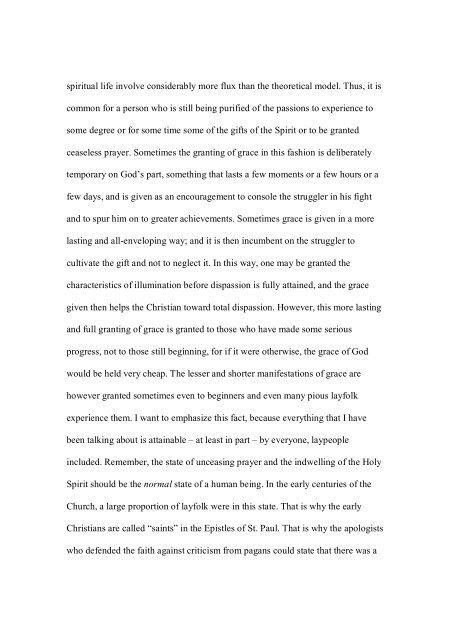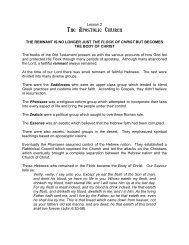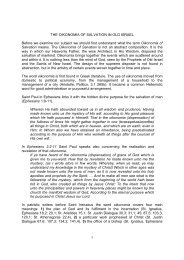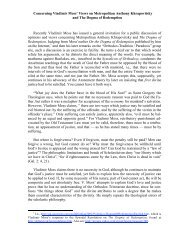Father Maximus - Saint Nektarios Greek Orthodox Church
Father Maximus - Saint Nektarios Greek Orthodox Church
Father Maximus - Saint Nektarios Greek Orthodox Church
Create successful ePaper yourself
Turn your PDF publications into a flip-book with our unique Google optimized e-Paper software.
spiritual life involve considerably more flux than the theoretical model. Thus, it is<br />
common for a person who is still being purified of the passions to experience to<br />
some degree or for some time some of the gifts of the Spirit or to be granted<br />
ceaseless prayer. Sometimes the granting of grace in this fashion is deliberately<br />
temporary on God’s part, something that lasts a few moments or a few hours or a<br />
few days, and is given as an encouragement to console the struggler in his fight<br />
and to spur him on to greater achievements. Sometimes grace is given in a more<br />
lasting and all-enveloping way; and it is then incumbent on the struggler to<br />
cultivate the gift and not to neglect it. In this way, one may be granted the<br />
characteristics of illumination before dispassion is fully attained, and the grace<br />
given then helps the Christian toward total dispassion. However, this more lasting<br />
and full granting of grace is granted to those who have made some serious<br />
progress, not to those still beginning, for if it were otherwise, the grace of God<br />
would be held very cheap. The lesser and shorter manifestations of grace are<br />
however granted sometimes even to beginners and even many pious layfolk<br />
experience them. I want to emphasize this fact, because everything that I have<br />
been talking about is attainable – at least in part – by everyone, laypeople<br />
included. Remember, the state of unceasing prayer and the indwelling of the Holy<br />
Spirit should be the normal state of a human being. In the early centuries of the<br />
<strong>Church</strong>, a large proportion of layfolk were in this state. That is why the early<br />
Christians are called “saints” in the Epistles of St. Paul. That is why the apologists<br />
who defended the faith against criticism from pagans could state that there was a





